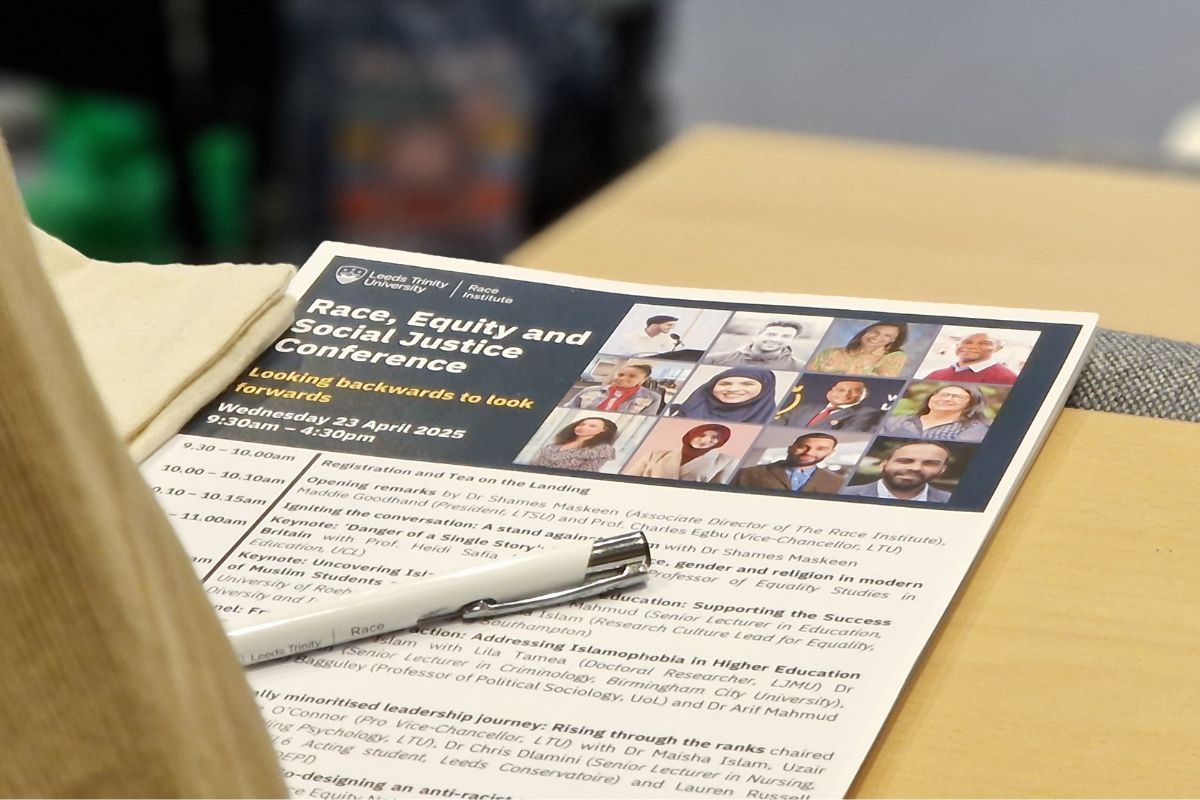Making the transition to university – for students with visual impairments

In this article, Noel discusses the additional support, funding and assistive technology available to students with visual impairments as they take the step from further to higher education.
Making the transition from sixth form or FE college to university, is a time of significant change for young people. Not just a first step towards a promising career, it’s an opportunity for new experiences, new friends and for many the chance to live independently for the first time.
For students with disabilities, such as visual impairments, the opportunities are no less. There are however usually a few additional challenges to overcome in order to study and live independently – away from familiar surroundings and the security of school and family life.
Here we’ll explore the obligations each university has to support students with disabilities, and how students who are blind or partially sighted can use these services. We’ll also share how students with visual impairments can access the funding they may be entitled to, to help them complete their studies. We will also explain some of the assistive technology that’s available to ensure students who are blind or partially sighted can read and study in line with their peers.
Disability Support at University
The accessibility provision within a university or HE college is usually arranged by a team of disability advisers, usually called the Disability Support Office, though some universities have different names for this team. You can find the contact details for the Disability Support team on your chosen university’s website.
While you might not identify with the term ‘disabled’ you may still benefit from the services offered by the Disability Support team at your chosen university. It’s advisable to get in touch with this department as soon as you can. You can talk to them and ask questions before you’ve even applied for a university place. It will help you gain a good impression of how your individual needs might be catered for, and what their previous experience is of supporting students with sight loss.
They may be able to offer you lots of advice on things you hadn’t considered about living and studying away from home.
All UK universities and higher education institutions have an obligation to ensure that all students with visual impairments – and other disabilities – are supported appropriately. This support might include an individual learning plan – ensuring reading material and other documentation is available in accessible formats; it could include support for applications for equipment, or support with exams and coursework assessments. Support may also include arranging accessible university accommodation, orientation around the campus and travel arrangements.
Financial Support
The cost of studying at university in the UK is now up to £9,250 per year in tuition fees (for courses starting in 2023 to 2024). While these tuition fees pay for your lectures, the facilities and equipment for your course, they don’t cover personal technology, travel costs, living costs or course materials.
Therefore, student loans are taken by most students. These include:
- Tuition Fee Loan – to cover the full cost of your course. You won’t pay this back until after your course when you’re earning over a certain threshold.
- Maintenance Loan – to cover the cost of living at university. The amount you’re eligible for can vary, depending on factors including your parents’ income, where your university is, how long your course is and where you live.
Students with disabilities, including visual impairments, can also apply for government grants and the Disabled Students Allowance (DSA). This is a grant of up to £26,291 a year (2023-2024 academic year) this does not have to be paid back. It can help you cover additional costs relating to improved accessibility to your studies, to help ensure you have equal access to learning. The DSA can cover:
- Specialist equipment such as laptops with screen readers or screen magnification software.
- Non-medical helpers, such as specialist note-takers.
- Extra travel costs – such as taxis and public transport – to attend your course, incurred because of your disability.
- Other disability-related study support.
Please note that the type and amount of support you get from the DSA depends on your individual needs. These are assessed during a ‘Needs Assessment’. Any equipment and support you are eligible for will be listed in a report after this assessment. These will then be paid for through any DSA entitlement you have.
For further information on the Disabled Students Allowance, we recommend exploring the DSA information on the UCAS website which covers information and links to DSA information for all countries in the UK.
You can also visit the government website to find information on extra help with undergraduate student finance.
Assistive technology for students with vision impairments
In order to study in line with your peers, it’s important to have equipment and assistive technology that gives you equal access to learning materials. This helps to ensure that you have the ability to read and learn at the same time as your classmates. Assistive technology designed for education and specific to students with sight loss can help you read, take notes, study and complete assignments.
Screen Magnification Software
Students who have low vision, are partially sighted or whose vision fluctuates or changes throughout the day can benefit from adjustable on-screen magnification. Software such as SuperNova Magnifier ensures that reading notes and following lecture presentations is comfortable and adjusted to suit the student. This software helps by increasing letter sizes to the level appropriate to each reader (larger than built-in accessibility features). It also allows for colour contrasts, font adjustments, highlights and single-line reading focus.
Screen Reading Software
For students who are blind, software that reads the on-screen content – with a synthesised voice or through an electronic braille display – means that class handouts, websites, presentations and reading material are all accessible.
Students with sight loss can also use screen reading software, such as SuperNova to complete and submit coursework and assignments independently.
Accessible libraries
There are accessible versions of textbooks and other reading and study material available free to eligible students. In the UK, the RNIB Bookshare Education Collection holds over a million titles in accessible formats.
Students with visual impairments and other print impairments, such as dyslexia can read these free on EasyReader App with accessible reading features for range of devices – including smartphones, tablets and Microsoft computers.
Making printed documents more accessible
As part of their diversity, equity and inclusion (DEI) policy, universities can easily ensure that their communications are accessible to anyone with a visual impairment or print impairment by providing class handouts, official letters, reports, documents or other written communication in a range of accessible formats.
They can do this using a conversion tool such as EasyConverter Express Which converts Microsoft Word documents into a range of formats – including large print, braille and MP3 – to make them accessible to are blind, partially sighted or otherwise print-impaired.
In conclusion, the right combination of support, funding and technology helps ensure university students with visual impairments have equal opportunities to study and live at university.
Reach out and speak to the Disability Support Team, or book an appointment to discuss your options. If you need guidance on starting this conversation, the Be My Best Self tool from Dolphin can help. It’s a useful starting point to help communicate what you need, so you can be confident in your move to higher education and independent living.
By Noel Duffy, Chairman of the Board, Dolphin Computer Access
FE News on the go…
Welcome to FE News on the go, the podcast that delivers exclusive articles from the world of further education straight to your ears.
We are experimenting with Artificial Intelligence to make our exclusive articles even more accessible while also automating the process for our team of project managers.
In each episode, our thought leaders and sector influencers will delve into the most pressing issues facing the FE sector, offering their insights and analysis on the latest news, trends, and developments.











Responses